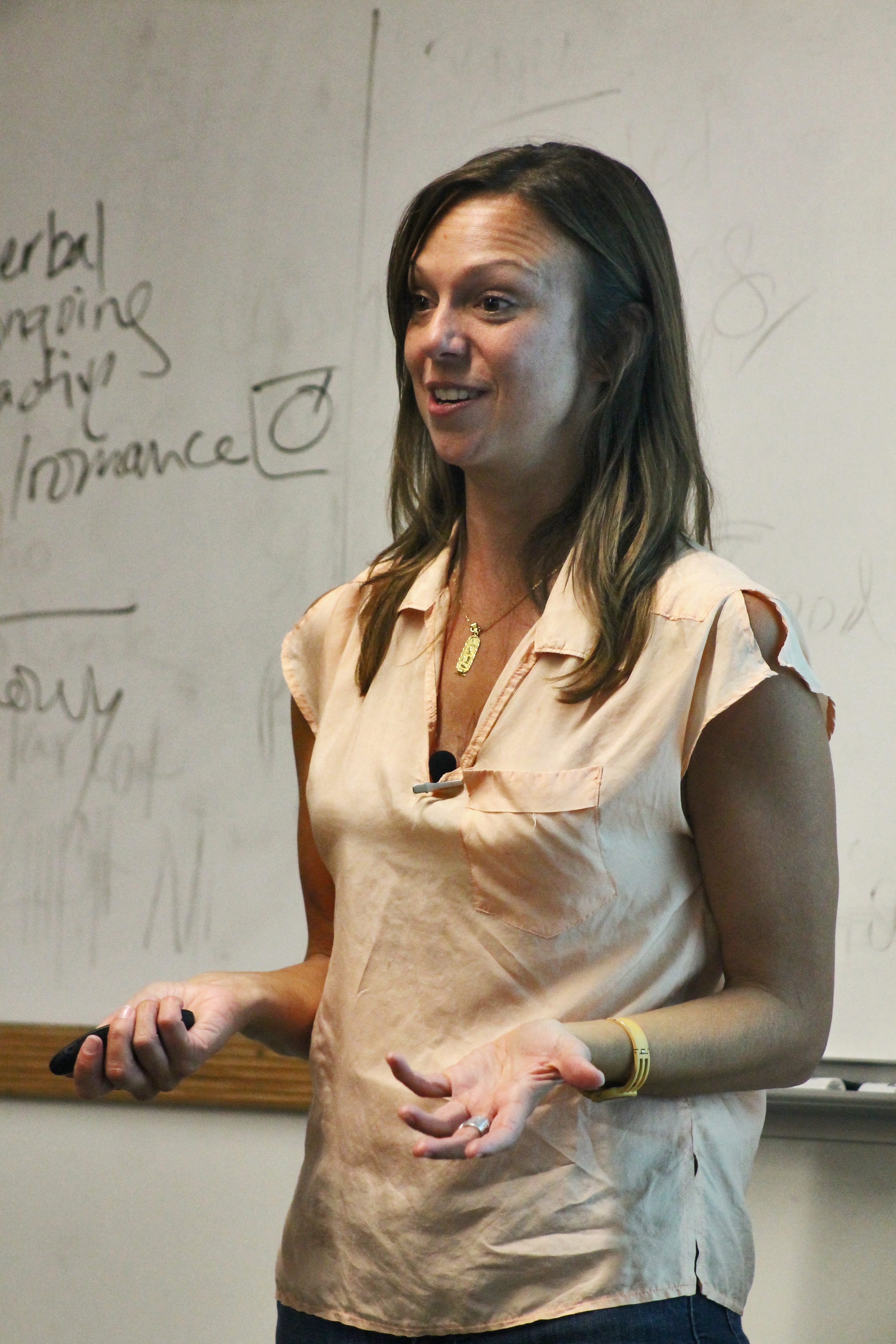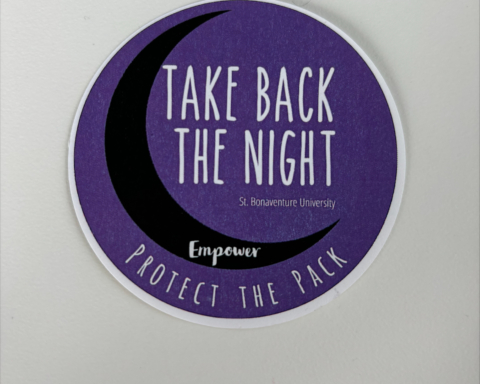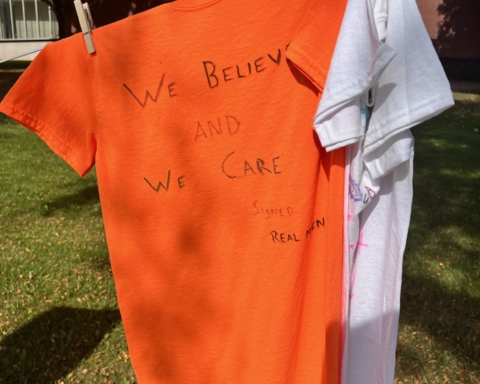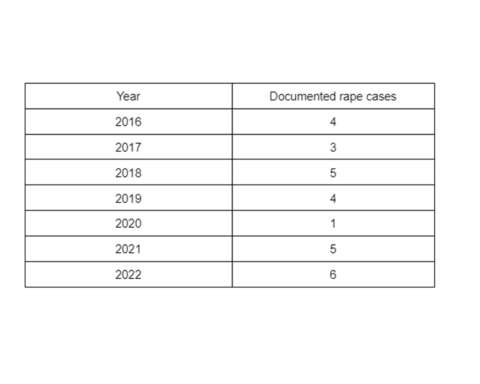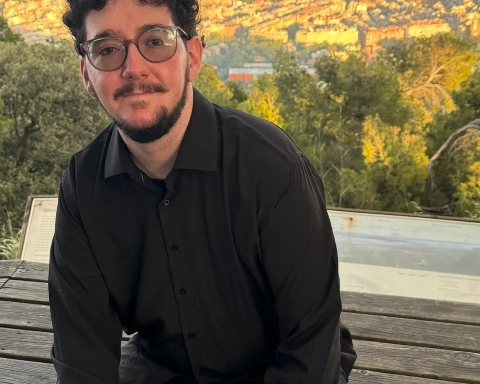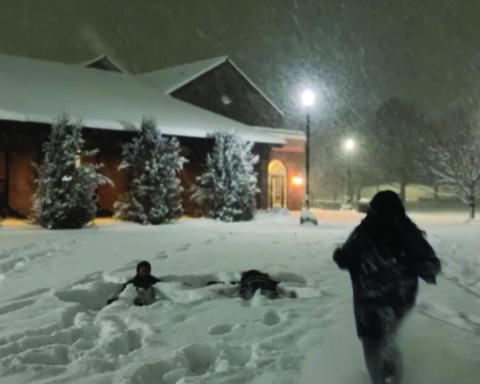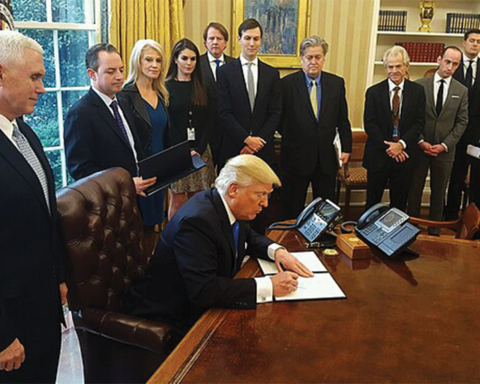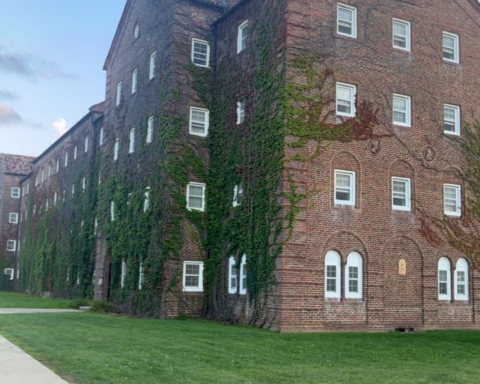By Hannah Gordon
News Editor
St. Bonaventure University administration began the emPOWER program this week to raise awareness on sexual assault, bystander intervention and Title IX procedures.
The emPower campaign is a series of programs and events developed by a specialized team during the summer to educate students about sexual violence and how to become an active bystander, which means to intervene in a situation that could lead to sexual assault.
Nichole Gonzalez, executive director for residential living and conduct, led the team of Chris Brown, director of First Year Experience, Vito Czyz, director of safety and security, Sharon Burke, Title IX coordinator, Rick Trietley, vice president for student affairs, and Roger Keener, director of the Wellness Center.
“In addition to making some slight changes to our procedures and policies, which most students wouldn’t even notice, we decided to look at ways in which we were going to kind of complement our policy changes with some educational programing,” Gonzalez said. “We don’t want to just be checking off a box, we really want to provide a quality campaign to help educate our students.”
On Monday, emPower was kicked off by “The Hook-Up” a presentation addressing the definition of consent. Amber Kelly, a representative from Catharsis Productions, LLC, an organization that aims to reduce interpersonal violence through educational programs.
“We label things so we know what to do with them,” Kelly said. “If we’re thinking of women for the purpose of sex, a lot of people think asking women to have sex would be just as awkward as asking a chair if you can sit in it.”
Hannah Vail, a junior chemistry major and women’s studies minor, said she thought “The Hook-Up” was thought-provoking.
“It was an excellent program that really got people to realize the prevalence of sexual assault on college campuses,” Vail said. “It made important points about what constitutes sexual assaults, and that rapists don’t always use physical force, that coercion and manipulation are tools used by rapists as well.”
Along with emPOWER, Gonzalez says the team will implement a year-long passive campaign through posters around campus. The posters will have students’ pictures with a message on how they feel empowered to be an active bystander. The first set of posters will feature resident assistants because they are faces everyone on campus knows, according to Gonzalez.
Today and Monday two bystander training sessions will be held in the Walsh Center Auditorium at 3 p.m. and 8 p.m., respectively.
“We’re not just looking at how do you prevent yourself from being assaulted, but how do you become a good bystander and how do we begin opening the conversation about people not committing this act,” Gonzalez said. “We want to change our language and change the culture on campuses, not just ours, but throughout the United States, regarding sexual violence. How do we kind of break the silence, encourage people to come forward and encourage people to step in and start to train people on how not to make this acceptable.”
Burke said she was excited about emPOWER and it’s possible effects on the campus community.
“I’m thrilled about empower. (Faculty) probably got the sense from my (Title IX) training that it’s all about knowledge,” Burke said. “I know this is about sexual violence, but that’s not just it. It’s about bias and racism and anything that makes a student uncomfortable. We want to empower all students.”
All faculty attended mandatory Title IX training sessions this school year, which was never required before. New legislation has made Title IX regulations stricter, according to Burke, but faculty responded well to the training.
“Our faculty is awesome. When they know why they’re doing something, it makes everything so much easier,” Burke said. “What is so cool is that staff asked ‘What do I do and how do I do this?’ They want to be involved.”
Currently, the university has an informal agreement with local law enforcement regarding sexual assault reports. Czyz said the federal government is sending out samples of memorandums of understanding (MOU) in November. MOU’s are formal agreements for working together when incidents are reported.
“Right now we have a handshake agreement with law enforcement,” Czyz said. “We pretty much know who does what, but we’re just waiting to get the written agreement.”
Gonzalez said the team planned to have a MOU signing ceremony with local law enforcement and victim services agencies in the spring.
“The more we keep going with status quo, the more that just becomes part of the culture,” Gonzalez said. “I want to help change this, but ultimately, my goal would be for me to just step out of this and have students take over because then there will be a difference made. “
Vail said she thinks students are made to think about their own actions when they are exposed to material like this.
“Education like this can do a lot to diminish, and eventually eliminate, rape culture,” Vail said.
There was a reported incident of criminal sexual violence on campus on Sept. 27, but the incident is still under investigation, prohibiting Czyz to speak about it.

